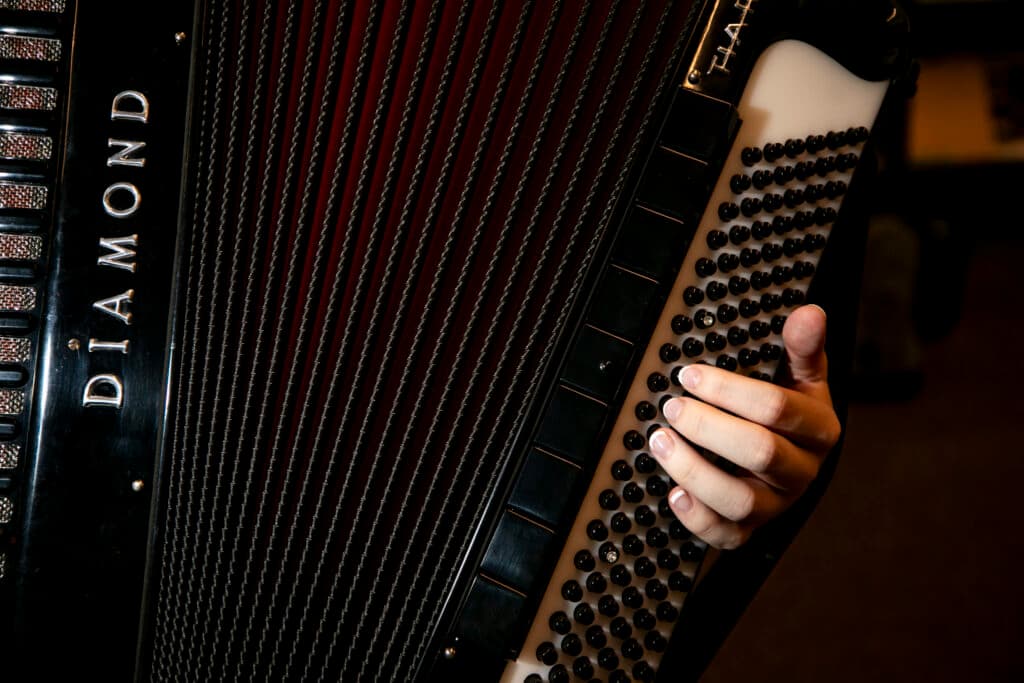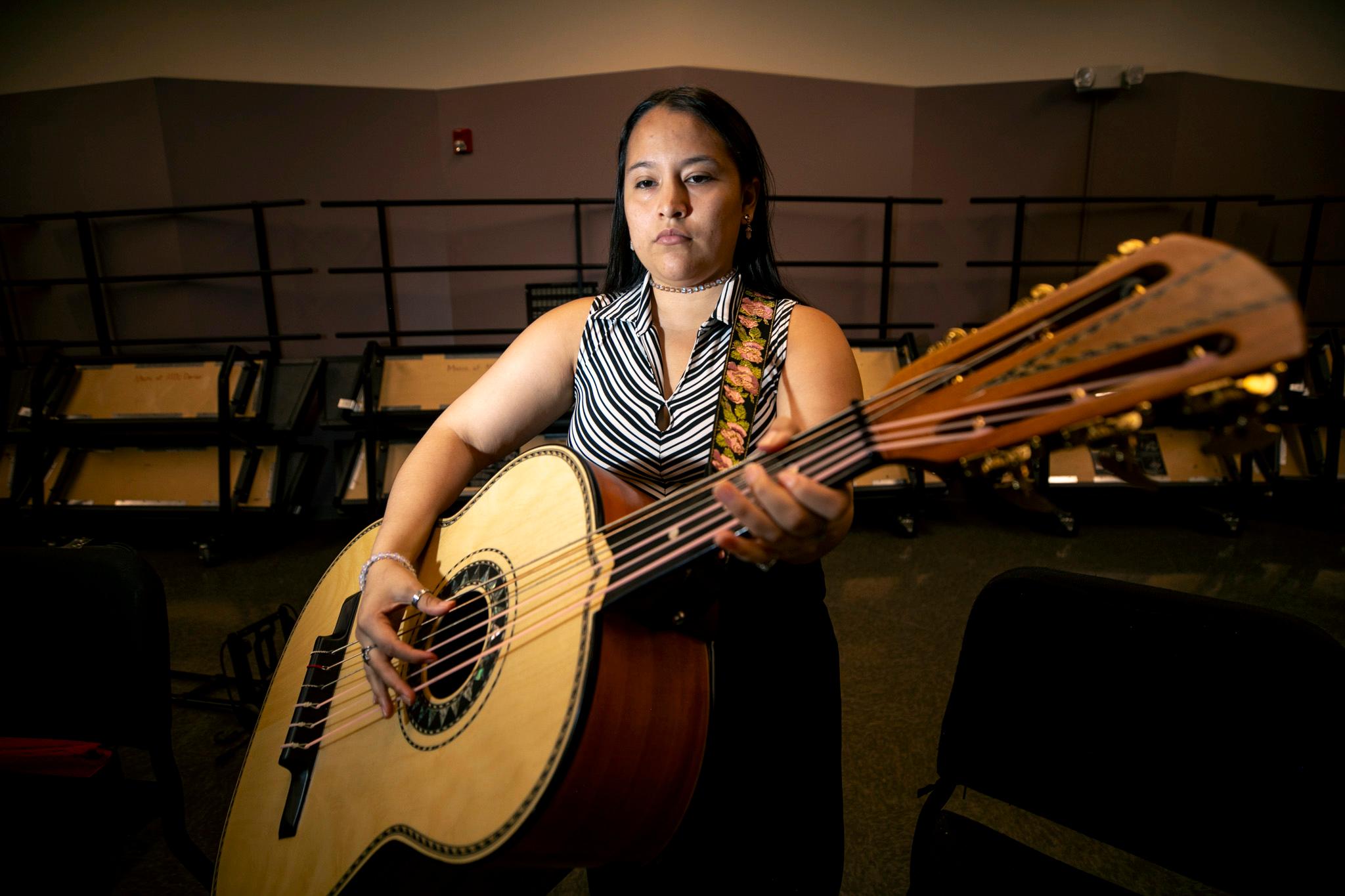Ruby Flores first heard mariachi as a young girl at a family party. Her aunt had just arrived in the U.S., and the family wanted to celebrate their Mexican roots.
The music captivated her: the unpredictable sounds of violas and guitarrónes, the upbeat melodies, and the ‘grito’ of the singer at the song’s climax.
But she couldn’t understand the lyrics. She had grown up speaking English, not Spanish.
“ I grew up a ‘no sabo’ kid, being in the United States. My mom really wanted me to be, you know, a United States citizen and kind of conform to their norms,” Flores said. “I grew up with a lot of the traditional things, but it just didn't feel like I was as connected to it.”
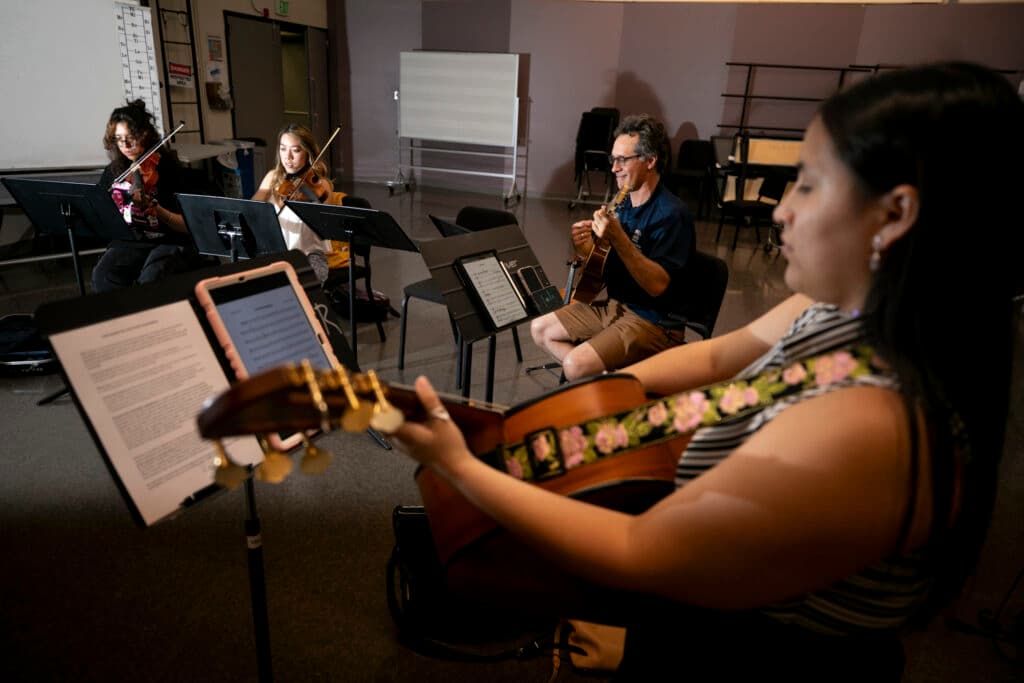
At least, not until she wandered into the mariachi class offered by Denver’s Metropolitan State University.
The first class was chaotic. Her professor at the time, Lorenzo Trujillo, pushed her to play “the most difficult songs.” But she liked the challenge. Soon her Spanish was improving, she was feeling more connected to her heritage, and she joined MSU’s mariachi ensemble, Los Correcaminos.
The group was created more than a decade ago by alumna Isahar Mendez-Flores. She wanted to give students the opportunity to perform as mariachis. Los Correcaminos has played at graduations, competitions, and even played the national anthem at a Nuggets game.
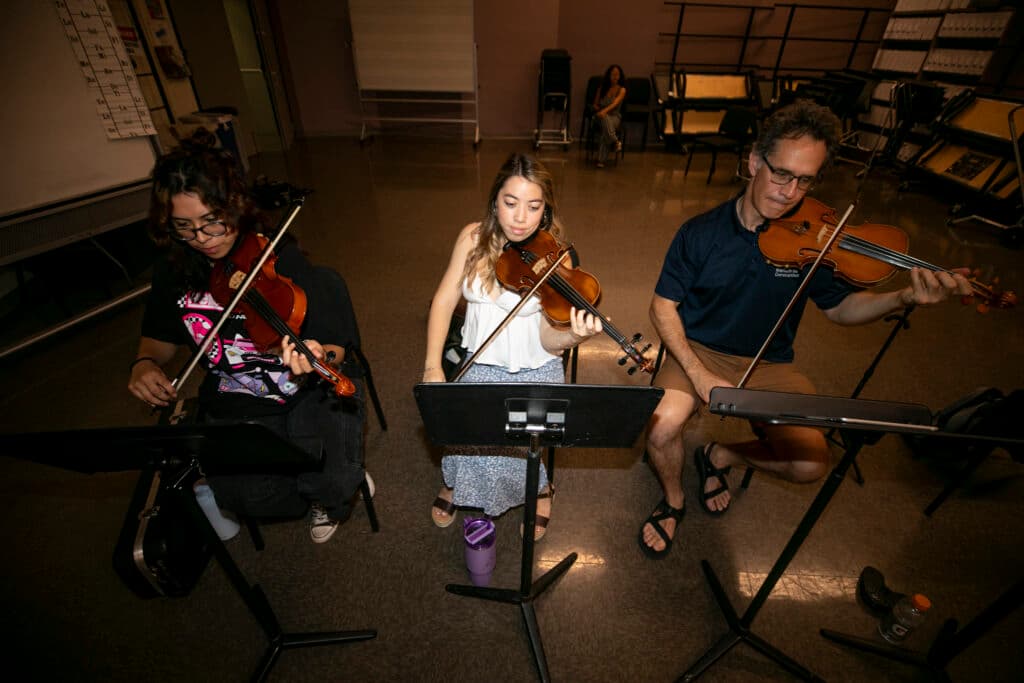
Making 'the ideal mariachi musician'
For Flores, joining the ensemble was an investment in her future — and a rare opportunity to break into the mariachi world, where established musicians have high expectations.
“[Mariachi groups] need the experience,” Flores said. “They want to know that you know what you're doing before you can even get an opportunity to play.”
With the ensemble and the mariachi class growing in popularity, Professor Phil Ficsor wanted to expand the school’s offerings. When he asked his classes if they would like to pursue an academic degree focused on mariachi, every hand went up. And Ficsor heard plenty of interest from prospective students, too.
“ Creating something that gives them the opportunity to do something they love is very near and dear to my heart,” Ficsor said. “It's also an opportunity for the program to grow as well.”
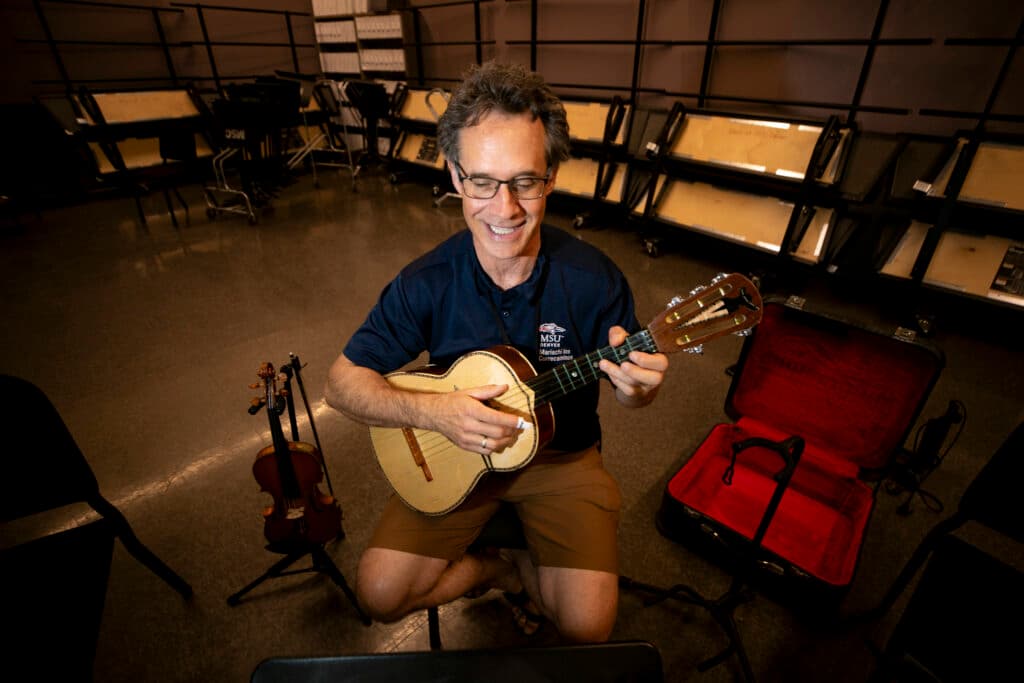
When Ficsor created the degree, he went through the individualized studies department. This allowed him to choose from classes he thought “would create the ideal mariachi musician.”
The degree requirements include Spanish proficiency, Chicano studies and lessons on traditional mariachi instruments like viola and guitarrón.
Lastly, it would require them to take business and marketing classes. Ficsor aims to teach students how to invoice for gigs, report their taxes and promote themselves.
“ I want one of our students to graduate and have the ability to say, ‘I wanna create my own mariachi ensemble,’” Ficsor said.
The degree could allow students to charge more for their gigs, run their own mariachi businesses and even become mariachi teachers.
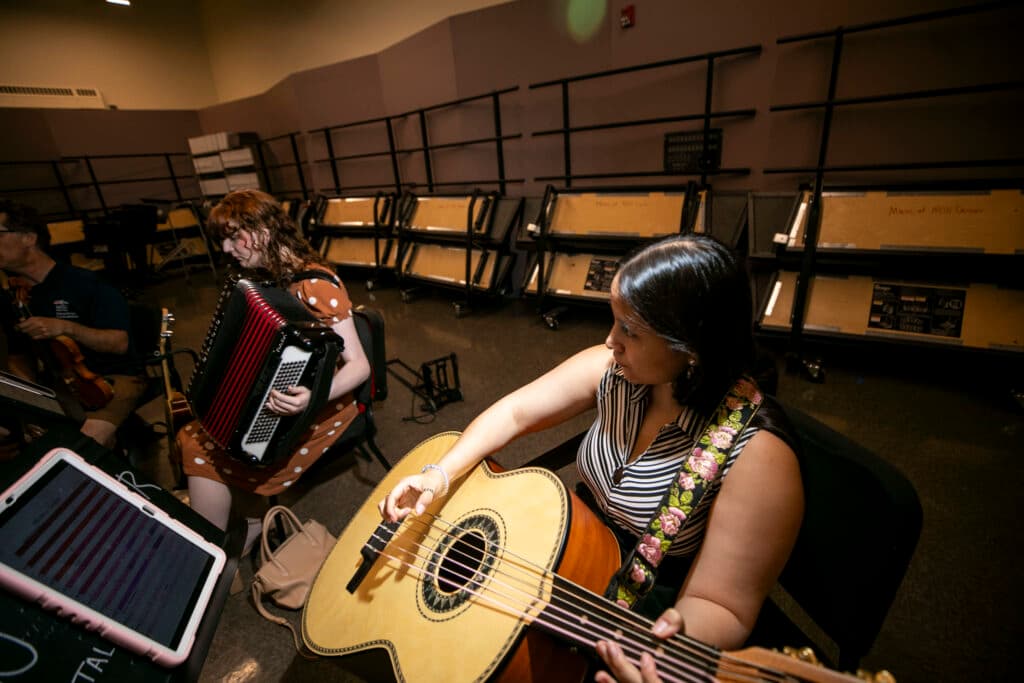
Mariachi is growing statewide
Mariachi programs are multiplying in K-12 schools across Colorado. There were even statewide mariachi festivals for high school students in 2024 and 2025.
That expansion is creating opportunities for mariachi students at MSU.
“Some of our students had not even completely finished their credentialing, and they were hired by some school districts because the need was so great,” said Lorenzo Trujillo, MSU’s artistic director for the mariachi program. “And so, it's an explosion … Bottom line, it's economic empowerment. It gives jobs to people that might not otherwise have really lucrative jobs.”
Mariachi can be an expensive enterprise, especially for those getting started.
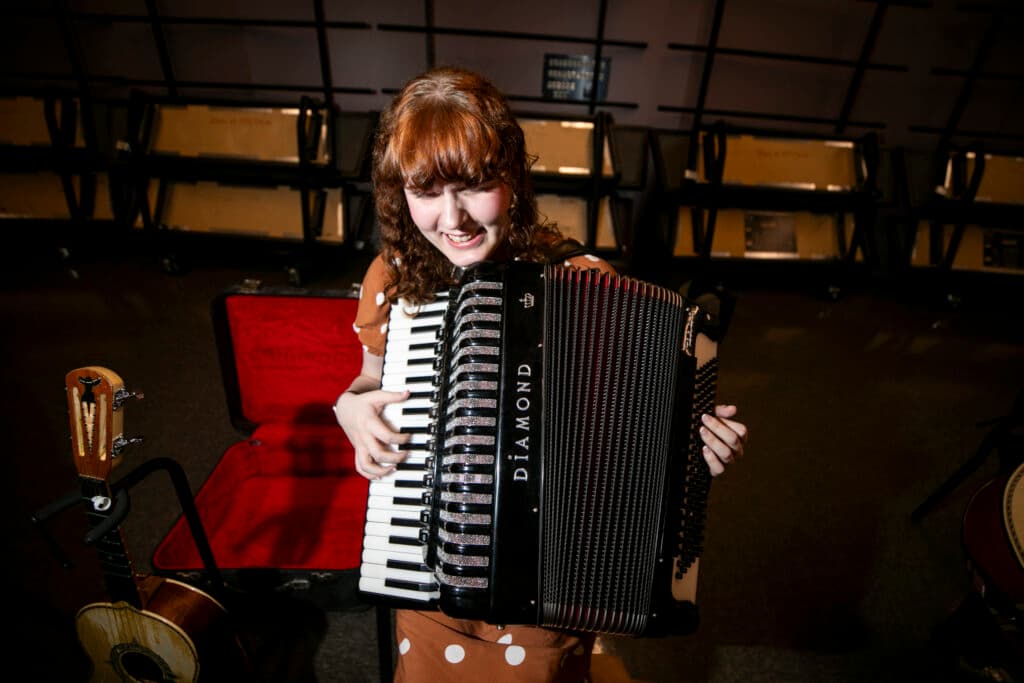
The traditional clothing of mariachi players, the traje de charro, can cost between $800 and $1,200, according to Trujillo. A good instrument can be more than $3,000.
What’s the payoff? A mariachi ensemble can charge $1,000 for a two-hour gig, split up between seven players, Trujillo said.
Las Dahlias performer Mari Mesa Burgos said she makes around $55,000, almost entirely from mariachi performance.
Mesa Burgos has already encountered many MSU students playing with professional ensembles and breaking ground in Colorado. She wants to support the movement, so she launched a nonprofit with Priscilla Arasaki, another member of Las Dahlias.
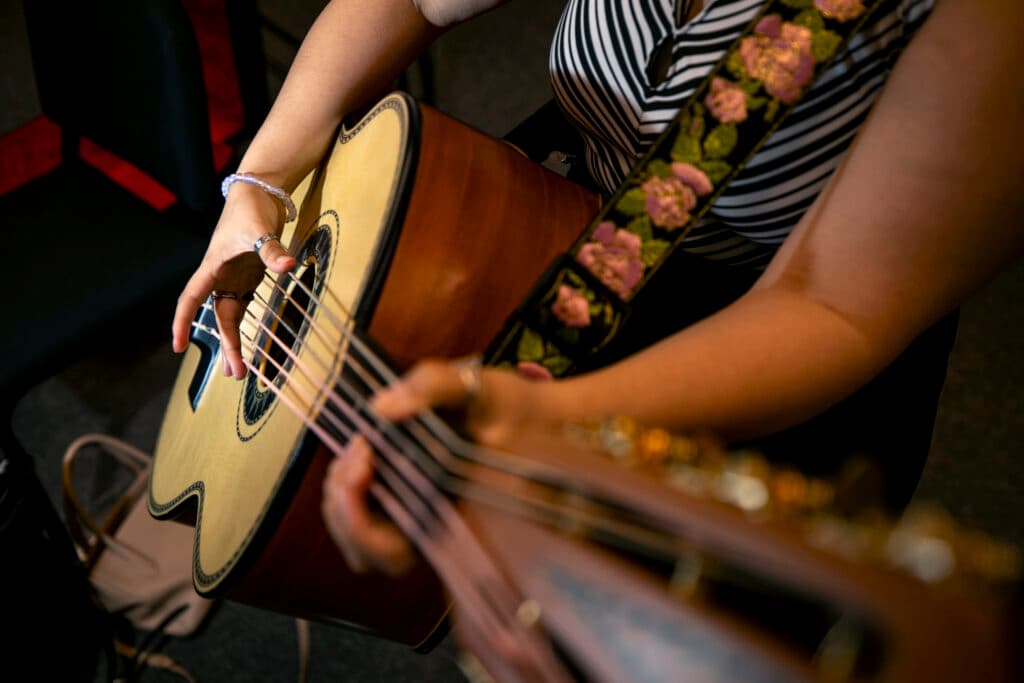
The nonprofit is called Cuerdas y Canciones, meaning “strings and songs.” It aims to help upcoming mariachi teachers and performers understand the culture of mariachi.
“This is part of Mexican culture, but it's also been in the United States for many, many years and it's not going to go away,” Mesa-Burgos said.
Ficsor and Flores hope MSU’s new degree will help students find sustainable careers in mariachi music. But they say it is the cultural understanding of the songs that ultimately makes a great mariachi.
“Beethoven once said that music is poetry without words,” Professor Ficsor said. “And in a way, mariachi music is the poetry of the Chicano culture.”
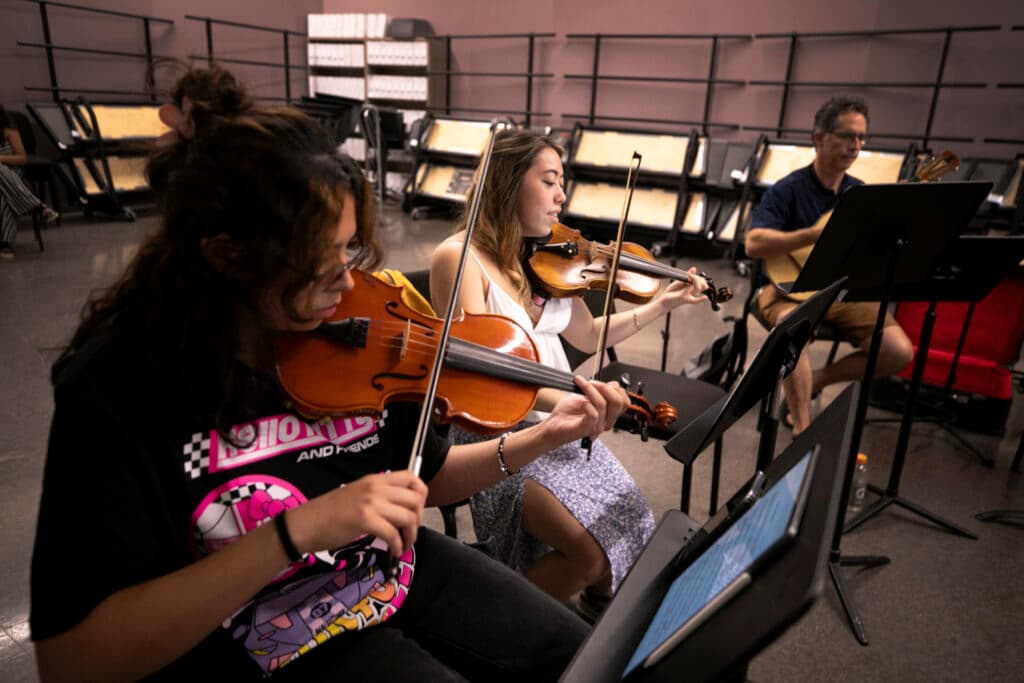
MSU’s mariachi degree will open to incoming freshmen starting this fall. Trujillo also hopes to create a master’s program one day. He wants the university to nurture mariachi teachers, researchers and performers “throughout the world.”
In the coming weeks, the ensemble Los Correcaminos will travel to Guadalajara, Mexico, for a workshop at the Plaza de Mariachis – a spiritual home for the genre.
Ruby Flores will be on the trip. She’s a senior now, so it’s too late for her to switch to the mariachi degree. But the visit to Guadalajara will represent one more connection with the music she’s come to love.
